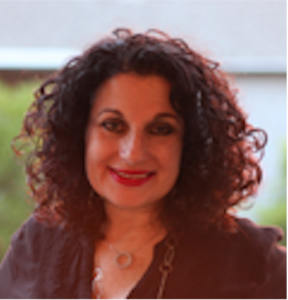Connections

The Kitchen: Adding New Flavors to Localization
Story Highlights
Starting off as a small localization facility geared toward a South American group of TV channels, Miami-based The Kitchen has grown into a global force, with a dozen dubbing facilities around the world, and a host of major media clients.
Company EVP Deeny Kaplan spoke with MESA about the company’s recent international growth push, the changing needs of media and entertainment localisation services in recent years, and how The Kitchen not only adapted to today’s remote-work reality, but found ways to thrive during the pandemic.
MESA: The Kitchen has been providing localisation services for nearly 20 years now. What was the impetus for the company, how did it first enter the media and entertainment scene?
 Kaplan: The Kitchen was conceived originally as part of the Miami-based Cisneros Television Group, as a playout and localisation operations facility for their 10 U.S.-based networks.
Kaplan: The Kitchen was conceived originally as part of the Miami-based Cisneros Television Group, as a playout and localisation operations facility for their 10 U.S.-based networks.
Ken Lorber, owner, president and CEO of The Kitchen, was first hired by Cisneros to build, staff and operate the facility as its then-vice president. A few years later, Lorber and a small group of investors purchased The Kitchen outright.
Ken has had a 40-plus-year involvement in the production industry, beginning in New York, where he founded and operated VideoWorks, and later in Miami, as president of Post Edge, providing facilities and services for the launch of MTV Latino and Discovery Latin America.
Taking The Kitchen from an English and LATAM language operation to a multi-language, localisation business, operating in 12 countries worldwide, was driven by current industry needs, desires and specifications of networks and larger distribution companies around the globe.
MESA: What does The Kitchen do differently than other localisation providers, what makes the company stand out against the competition?
Kaplan: The Kitchen is a dubbing studio that believes in operating “outside of the box.” We have never been afraid to think differently. Creating a successful post house in the crowded New York market required offering unique solutions and Lorber approached his localisation business in a similar fashion. It’s how we won our two Emmys for the development of our global language suite of software tools. Why not bring in a new option, around an area of the industry that had not been recognized by the Television Academy before?
I believe that one of our primary assets, and what truly sets us apart from our competition, is our commitment to customer service. We are truly old school. We work 24/7. We don’t think about time zones. We always answer our phones. Our SOP is to get to know our clients, to completely understand their needs, and create a team-like atmosphere.
MESA: How has The Kitchen adapted in recent months to the global pandemic, both within your facilities, and accommodating voice talent to work remotely, without sacrificing dubbing quality?
 Kaplan: More than 50% of our staff has been working from home since early March. We are able to work remotely quite easily and produce very efficient results. Our operations have not slowed down. Those who do go into the studio — directors and talent primarily — are subject to intense “new normal” operative demands. We have full-time cleaning crews. We demand masks. One person in the elevator at a time. No waiting in the green rooms or lingering after sessions. Studios are sanitized between recordings. Pop filters are changed after each talent has completed their work. Hand sanitizers are available everywhere.
Kaplan: More than 50% of our staff has been working from home since early March. We are able to work remotely quite easily and produce very efficient results. Our operations have not slowed down. Those who do go into the studio — directors and talent primarily — are subject to intense “new normal” operative demands. We have full-time cleaning crews. We demand masks. One person in the elevator at a time. No waiting in the green rooms or lingering after sessions. Studios are sanitized between recordings. Pop filters are changed after each talent has completed their work. Hand sanitizers are available everywhere.
Additionally, our teams have designed remote recording capabilities, testing what works best, and assisting talent in implementing the approved design within their homes. Some clients are insisting that we use remote recording only. Others have been delighted with the safety and hygienic conditions provided in our studios. Both options have proven to be effective.
MESA: In 2017 The Kitchen began an aggressive worldwide expansion, opening localisation facilities around the world. Why was it crucial to open facilities in places like Brazil and Turkey, and where is The Kitchen looking to offer its services next?
Kaplan: The Kitchen has directly responded to our international clients’ needs to source their language localisation projects with one facility, one call, and a single project manager. We are now operating in 12 countries/regions globally: France, Italy, Germany, Spain, Brazil, Mexico, Moldova, Russia, the Middle East and North Africa (MENA), Hungary, Turkey and the U.S. We have a European sales office in Madrid, helmed by Alexis Cardenas, VP of international sales, and a European translation team operating out of London. Our EMEA managing director, Yoram Chertok, is based in Israel.
The challenge is always understanding the operational and cultural differences in each location. We have assembled an amazing team worldwide, and yes, we will be growing. We’re now working toward adding operations in Poland, Portugal and India.
MESA: With the explosion of OTT and direct-to-consumer services worldwide, what are some of the biggest changes The Kitchen has witnessed in the international subtitling space (and what do content owners need to keep in mind when going global)?
 Kaplan: Ben Ferguson, an experienced industry pro and our newly appointed VP of operations, can weigh in on that: “The biggest change has been the sheer volume of subtitling work as the studios and platforms look to sell their content into new markets and new territories. To service these markets, we needed to increase our network of translators and train them to produce the quality that is required by consumers worldwide. There are multiple localisation vendors using the same pool of translators, so one of our greatest challenges has been finding new translators and getting them up to speed.”
Kaplan: Ben Ferguson, an experienced industry pro and our newly appointed VP of operations, can weigh in on that: “The biggest change has been the sheer volume of subtitling work as the studios and platforms look to sell their content into new markets and new territories. To service these markets, we needed to increase our network of translators and train them to produce the quality that is required by consumers worldwide. There are multiple localisation vendors using the same pool of translators, so one of our greatest challenges has been finding new translators and getting them up to speed.”
With the explosion of OTT we have also seen a dramatic increase in foreign language content from multiple territories. In the past, the majority of our translation work has been from English, but with the worldwide release of hugely successful Turkish, Korean, French and Spanish language content, we have needed to find translators with a different skill and set to service the demand.
MESA: What are some of The Kitchen’s favorite customer success stories, and why?
Kaplan: It’s difficult to come up with one favorite customer success story. We feel every new customer and our long customer retention is our greatest success. Evolving from an in-house localisation business into a global solution for the likes of NBCUniversal, BBC, Viacom, AMC, Discovery, Lionsgate and many others is our favorite success story.
The Kitchen is not the biggest language localisation studio, but it is one of the fastest-growing success stories in the field. It remains the industry’s only Emmy Award-winning language studio, an achievement we are quite proud of.
What’s next? Well, together we can figure that one out. Groups such as MESA U.S. and MESA Europe have brought competitive companies together to delve into what works, what doesn’t, and ultimately, what is next?
Learn more about The Kitchen and its services here.









